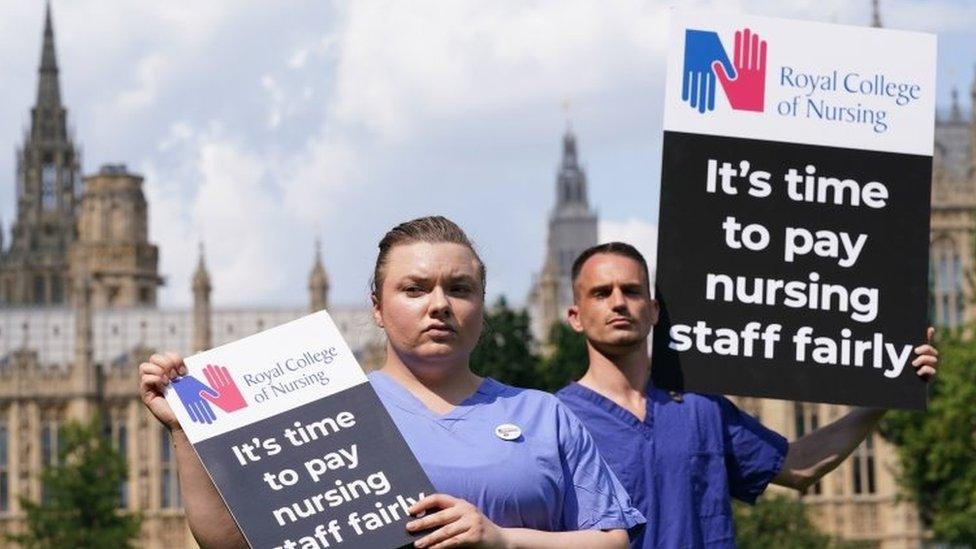Nurses strike: Thousands join first walkout on 'sad day'
- Published
Thursday: Striking nurses on the picket line say "enough is enough" in pay dispute
Nurses across Wales have staged their first strike as a dispute over pay deepens.
Some services are exempt from strike action, but thousands of appointments and procedures are expected to be affected.
Nurses are asking for a 19% pay rise, but the Welsh government offered between 4% and 5.5%.
It said it needed more money from the UK government to fund pay rises, but Westminster said that was unaffordable.
Nurse practitioner Sue Williams, who was on the picket line at Ysbyty Gwynedd in Bangor on Thursday morning, said it was a "very very emotional day, a really sad day".
"We do not want to be on the picket line... but we have no other choice and enough is enough really."
Neil Evans has worked in the NHS for more than 20 years as an A&E nurse and said he was acutely aware of the impact of industrial action.
"It's still gut-wrenching now to think that I'm going to withdraw my care, but I have to fight for fairer pay."
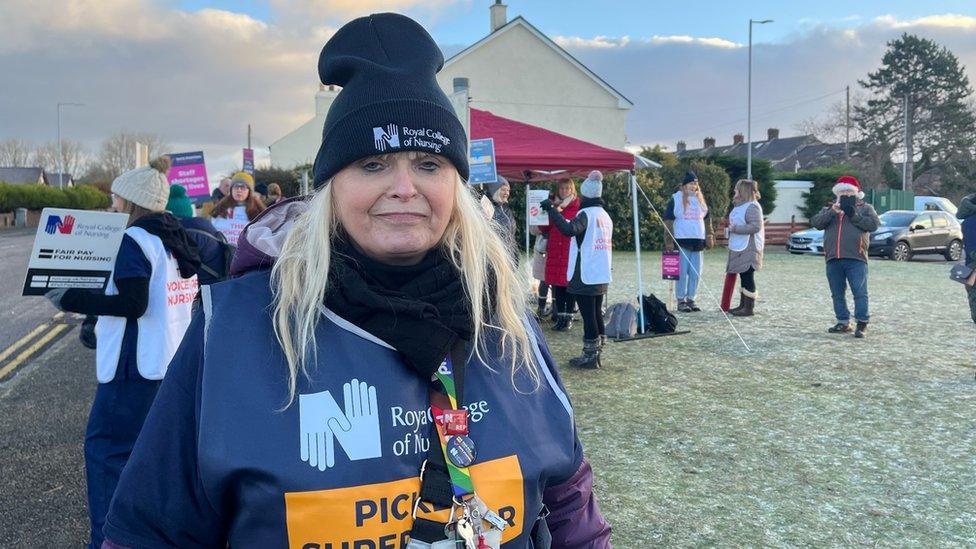
Nurse practitioner Sue Williams said nurses would rather be with their patients
"It's not an easy decision," said the 51-year-old from south Wales. "I really did have to wrestle my conscience."
But he said the strike was about more than pay.
"It's about getting the numbers back into the healthcare system, taking the pressure off the staff and letting us do what we were trained to do," Mr Evans explained.
Chemotherapy, dialysis, intensive care - adult, paediatric and neonatal - and emergency care are running as normal.
Another walkout is planned for Tuesday.
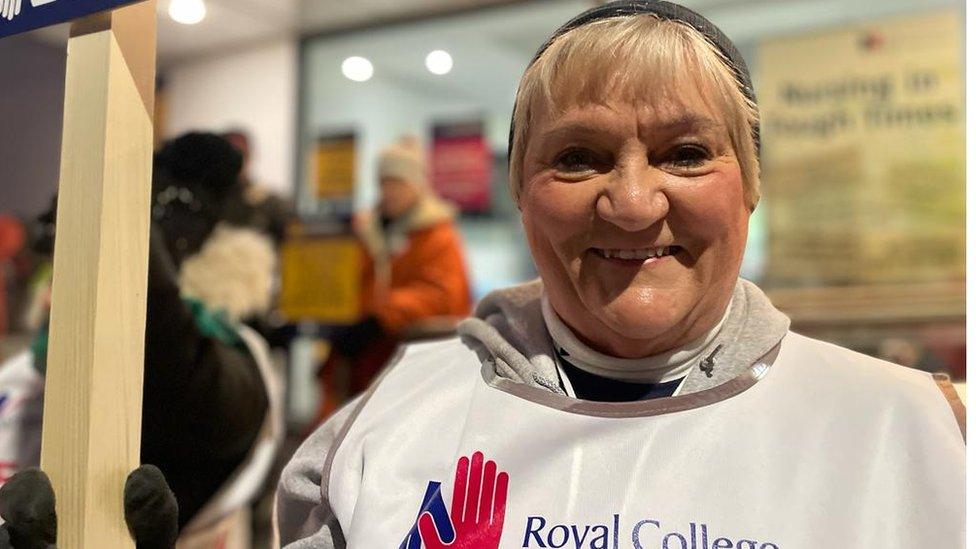
Sarah Hill says she is fighting for the future of nursing and for patients
Sarah Hill, who works in women's health, joined the picket line in Cardiff and said she was fighting for patients as waiting lists were getting longer.
"Pay rises are important to us... people think we get paid more than the government are telling them but we don't."

What does the public think?
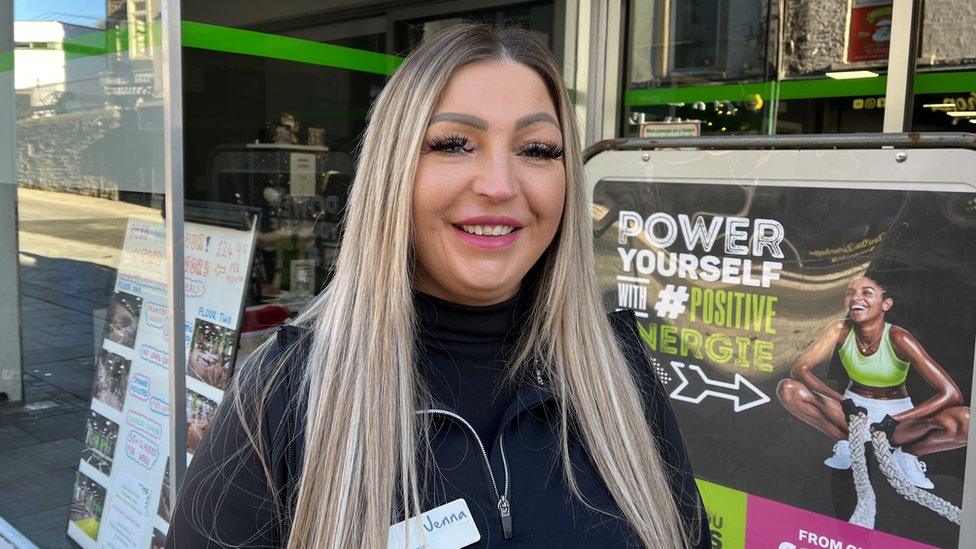
Jenna Pledge from Pontypridd supports the nurses strike
Jenna Pledge, 38, from Pontypridd said: "I took my boy to the hospital. They (the nurses) were just rushed off their feet. There was a nine-hour wait in A&E. There wasn't enough staff. I felt really sorry for them."
"Ward 17 Royal Glamorgan was absolutely amazing."
"100% deserve more money. They're not recognised enough for what they do in their day to day job. The amount of stress they've got down there - I feel sorry for them."
John Clark, 71, from Pontypridd said he supported the strike "to a certain extent", adding: "I think things should have been sorted before the strikes. Nothing will be gained by striking , it's negotiation and talking that will sort it."
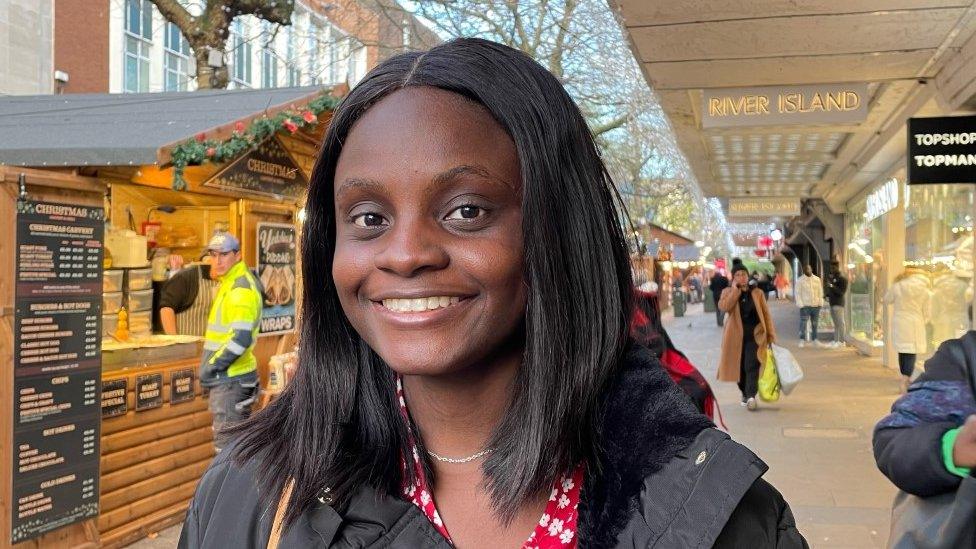
Inioluwa Longe says she sees how hard her nurse friends work
Inioluwa Longe, from Swansea, said: "I have friends who are nurses and I see how much they actually work.
"With more demand for the NHS there's not enough staff to deal with the demand so if they need to work harder, they should be paid more."
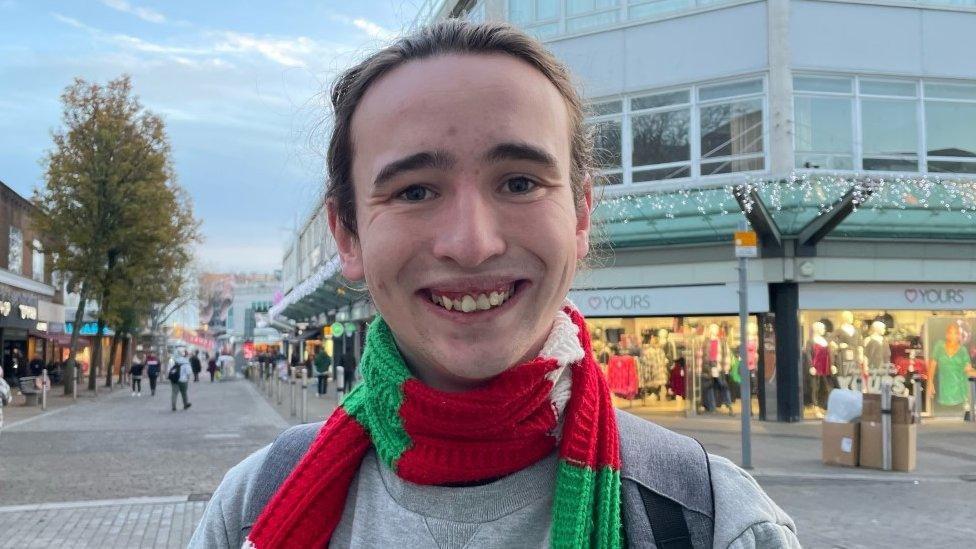
Rhys Jeffrey supports the nurses' decision to strike
Rhys Jeffrey, also from Swansea, said he was "entirely on their side".
"It's utterly unprecedented but I am massively for strikes and unions so I fully support them because if the working conditions aren't right for them, then that's the only thing they can do."
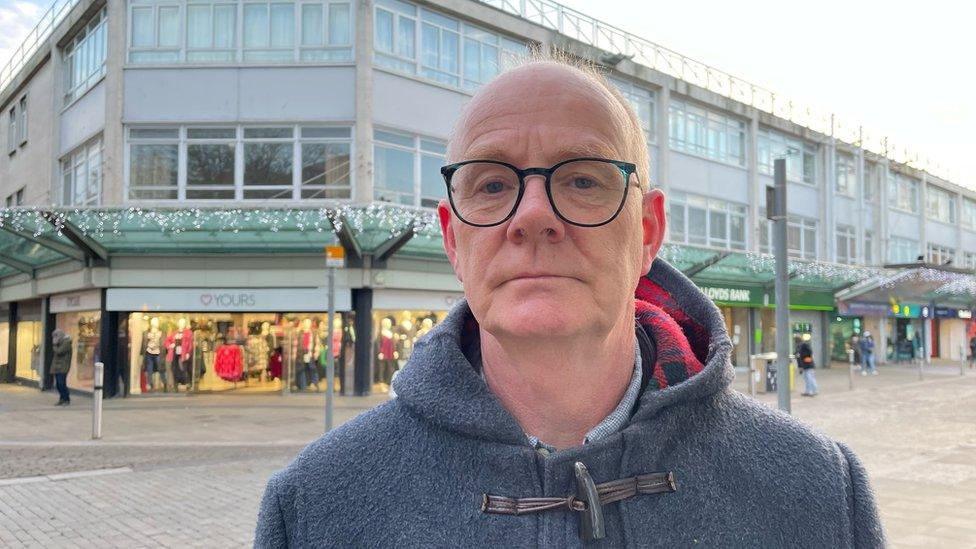
Melvin Williams says the fact nurses are striking shows how bad the situation is
Melvin Williams said: "I think they need to be paid more.
"I think the government need to sit down and listen to their concerns and stop lying when they say nothing can be done about it.
"There's always concerns but I think it shows something that the nurses are being forced to strike after all these years. It shows how bad the situation is."
David from Barry, Vale of Glamorgan, who was due to have a pacemaker fitted on Thursday, said the cancellation of his operation was "a great deflation" for him.
"It's the fact that years and years of worry and fears and hope all come together and crystallise themselves in this one date. So it wasn't just a matter of a cancelled date. It's the fact that lots and lots of mental energy had gone into it."
He said he had sympathy with nurses' financial situation but to strike this close to Christmas was "horrifically cruel".

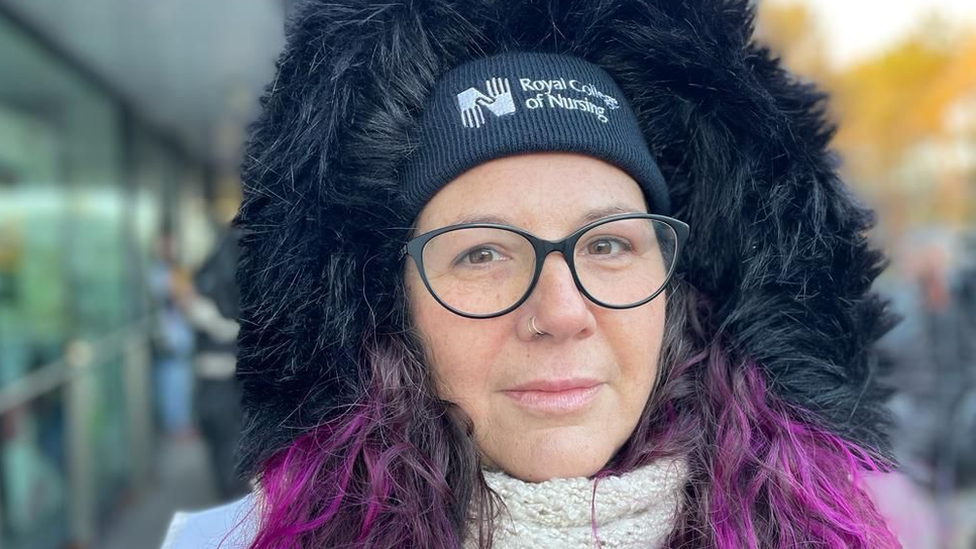
Lynne has been a mental health nurse for the past 24 years
Lucy Campbell, 30, a staff nurse in transplant and nephrology, spent the past three years training in an unpaid role. She said nurses feel they have been hit hard by the cost of living crisis.
"It was a really difficult decision to strike. Last night I was up quite late thinking about it. This morning I actually went up to the ward and then made the decision to strike," she said.
"I do feel terrible about it, but it's the only way people are going to listen to us."
Lynne Vincent, 49, a mental health nurse who has been working for the NHS for 24 years, said: "I'm the sixth generation nurse in my family, the thing that worried me the most was the impact this would have on my patients in an already existing staff shortage."
She said people had mostly been supportive, though she did experience one person who pushed her out of the way during the picket.
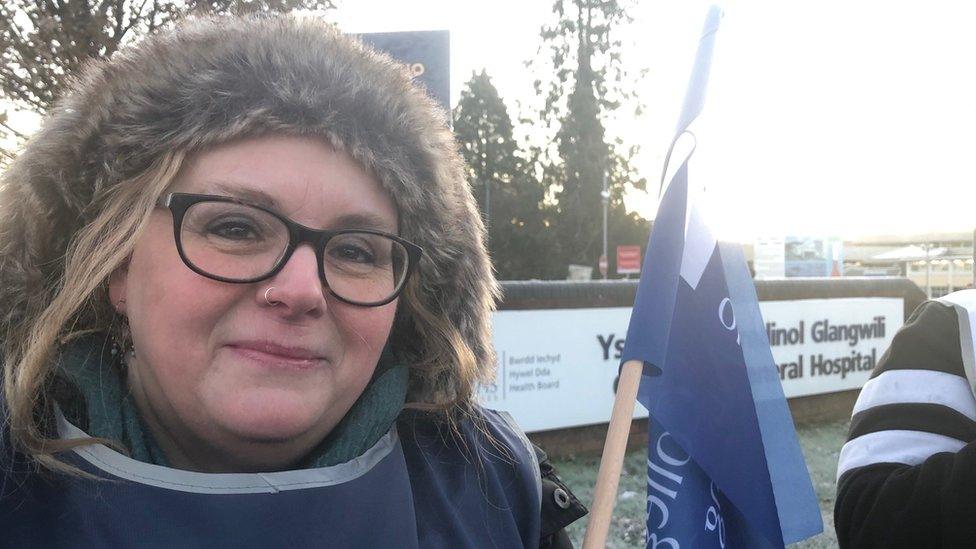
Wendy Jones said it was not an easy decision for nurses to decide to strike, and emergency care was protected
Wendy Jones, a clinical nurse specialist in urology at Hywel Dda, the health board for west Wales, said: "I think we have been underfunded and underpaid for many many years now, it's not just about salaries, it's about safety for patients.
"I think the NHS is gradually being eroded away and I think its time to stand up and say no, we have got to look after our NHS because it is something we should value in this country."
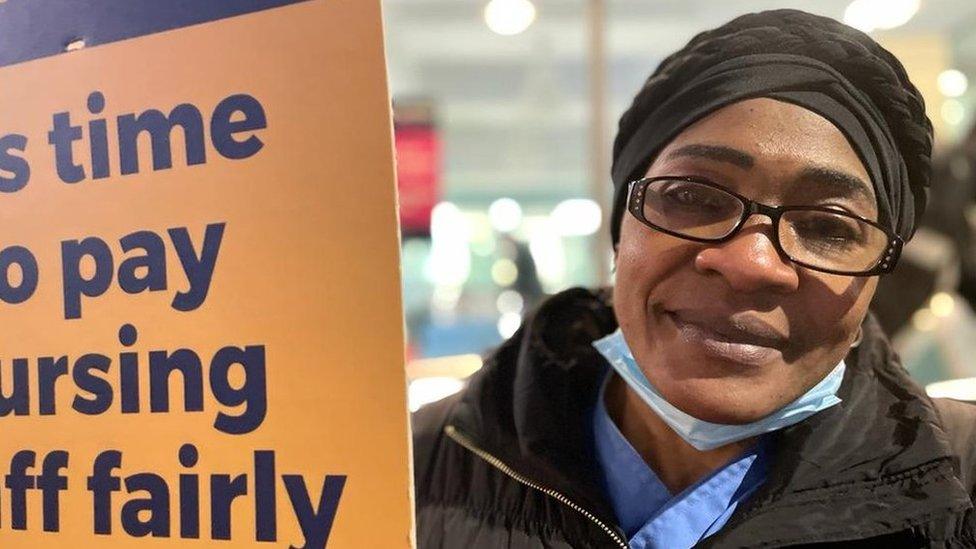
Ani joined strikers after finishing her own shift
Ani Feh, 45, an emergency department nurse from Cardiff who finished her 12-hour night shift and joined the picket line, said: "The shift last night was OK, but pressure was starting to build this morning".
Some radiographers in Cardiff also joined the walkout in support of nurses.
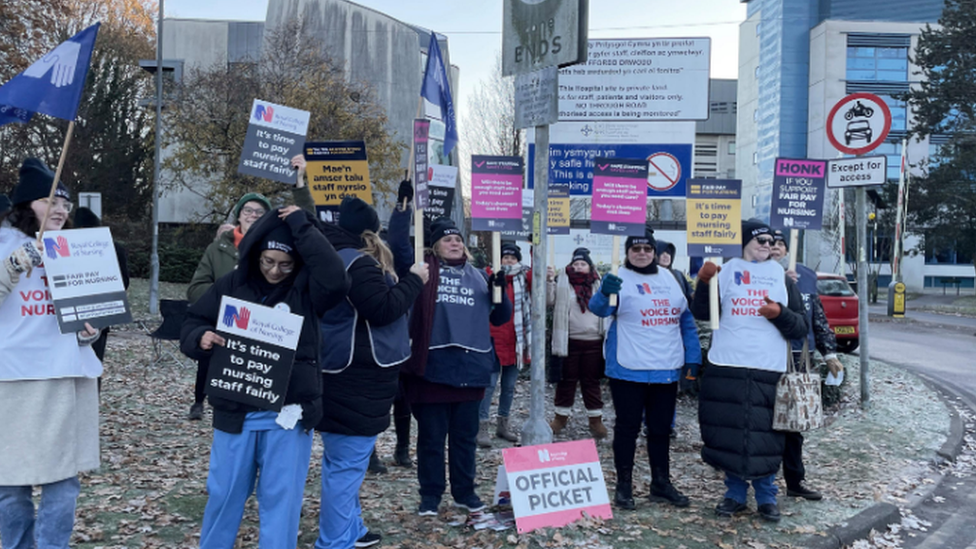
Members of the Royal College of Nursing (RCN) on the picket line outside University Hospital Wales in Cardiff
Mared Williams, 25, a radiographer in Cardiff said: "We work a lot with the nurses.... we've seen what they've been through during the pandemic and they deserve to have pay that can let them live comfortably."
She and other radiographers decided to support the nurses strike on Thursday and plan to do the same on Tuesday, the second strike day.
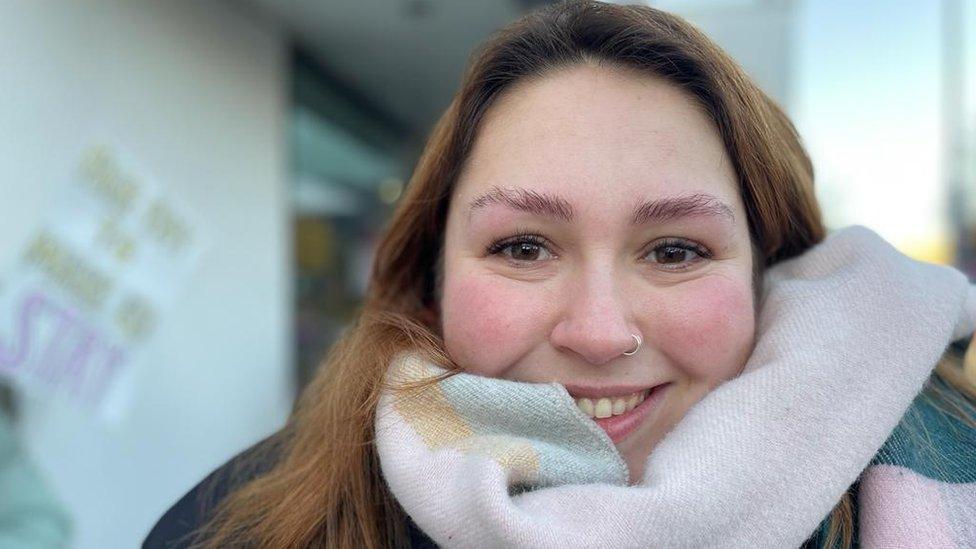
Mared and her radiographer colleagues have used their day off to join nurses on the picket lines
Bodies representing NHS staff have long talked of recruitment and retention problems, but those issues were exacerbated following the pandemic.
With a backlog of more than 500,000 patients in Wales waiting for planned care, and lengthy delays for emergency care, those pressures have continued to intensify across the country.
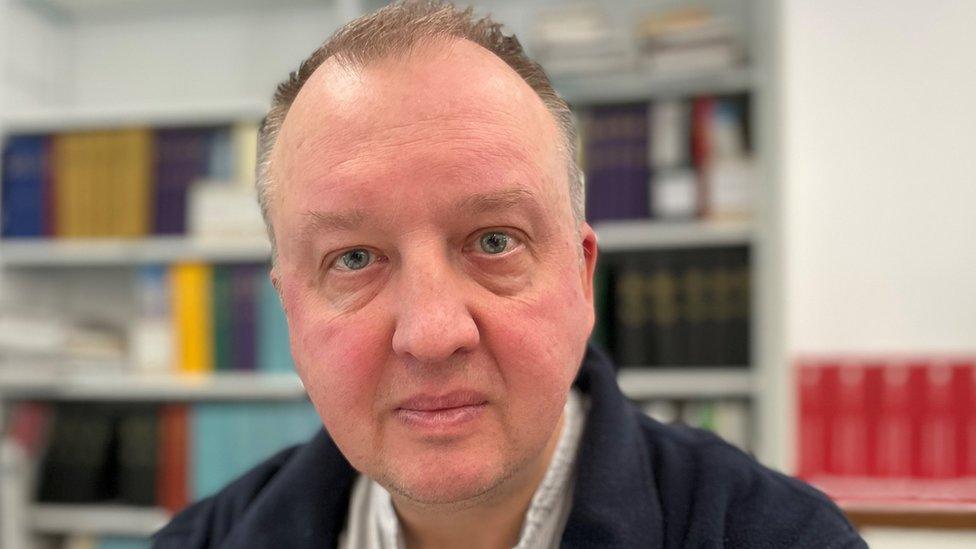
Neil Evans is one of thousands of nurses striking in what is a tough decision, he says
Geoff Ryall-Harvey, chief officer of the Community Health Council North Wales, which represents patients, said he believed there was sympathy for nurses.
"They (the general public) recall that nurses put their lives on the line and died during the pandemic," he said.
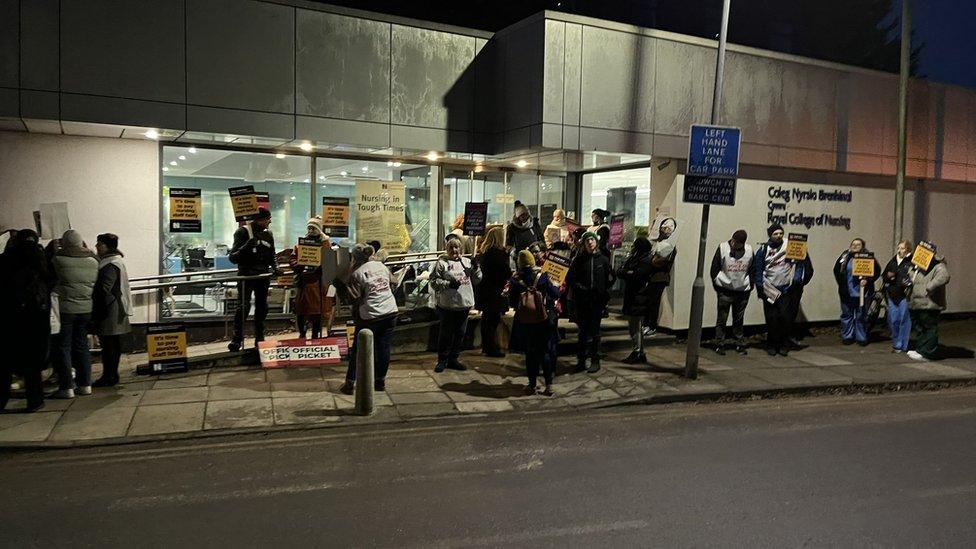
Nurses gathered outside Cardiff hospital early on Thursday morning
He has advised patients to attend their appointments unless they have been told otherwise.
The head of the NHS in Wales, Judith Paget, said the biggest impact of the strike would be seen on routine care.
She said: "I know my NHS colleagues are doing absolutely as much as possible to try and recover some of the lost activity from Thursday.
"But the longer it goes on the greater that impact will be."
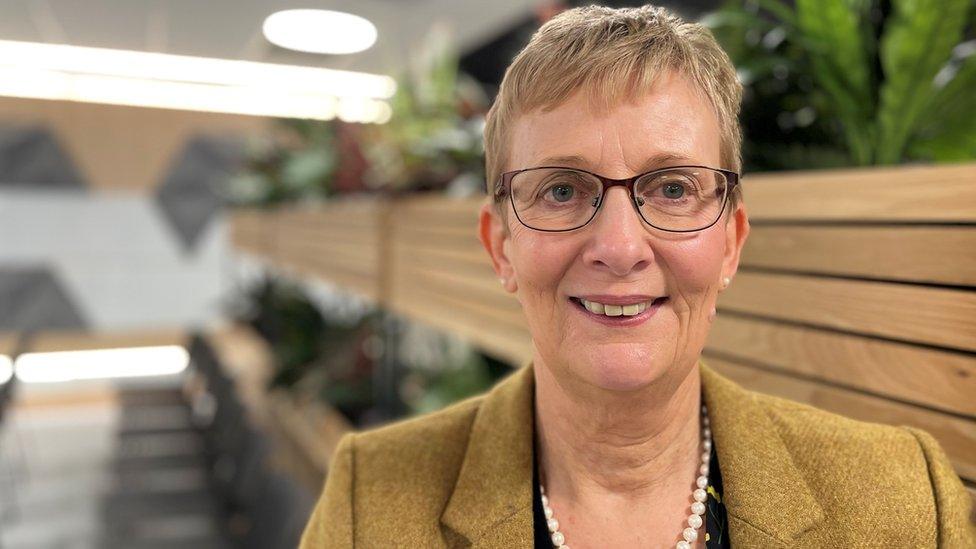
Judith Paget says staff are doing their best to recover activity from Thursday's strike
She advised those patients who need urgent care to seek it as usual, directing people to the 111, external and 999 services depending on severity.
"I think people should do what they would do on a non-strike day: if they've got urgent and emergency care needs the services that they would use will still be there," said Ms Paget.
"And if they need surgery, the theatre will be open and they'll have the surgery they would need, if it's life saving and an urgent requirement."
Health Minister Eluned Morgan said she believed all public sector workers should be paid fairly for what they do and that the Welsh government would continue working with bodies to "deliver the best possible outcome" with the funding available.
Plaid Cymru's spokesperson for health and care, Rhun ap Iorwerth MS said: "Plaid Cymru is on the side of all workers fighting for fair pay and safe working conditions. We fully support our hard working nurses as they take a stand against the real terms pay cuts and the crisis in their workforce, and we urge Welsh Government to look again at their responsibility to avert this crisis."
- Published15 December 2022
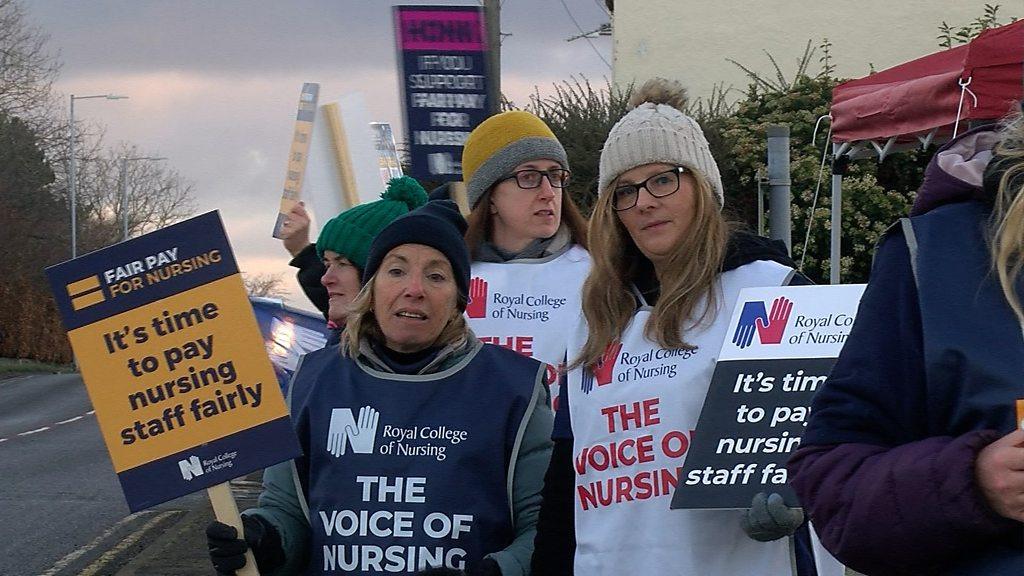
- Published8 December 2022
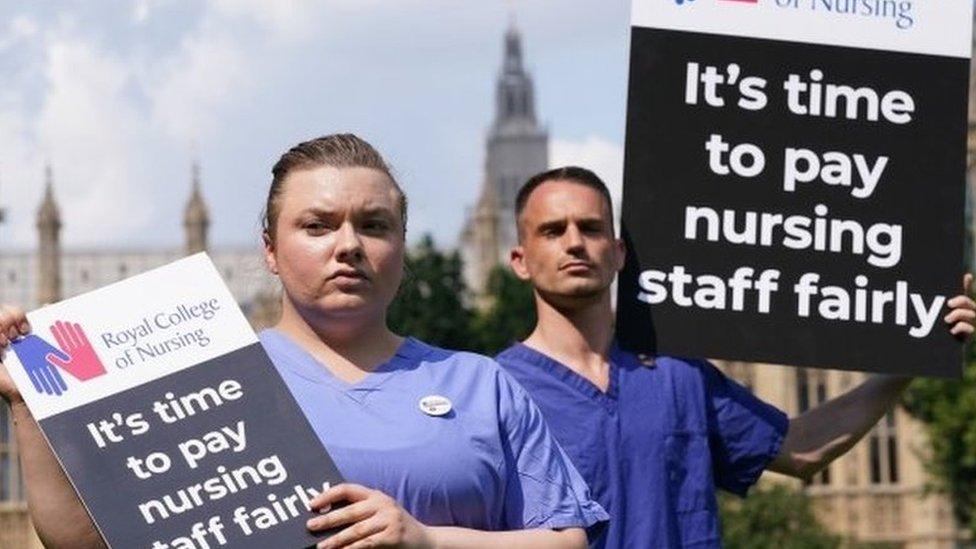
- Published17 July 2024
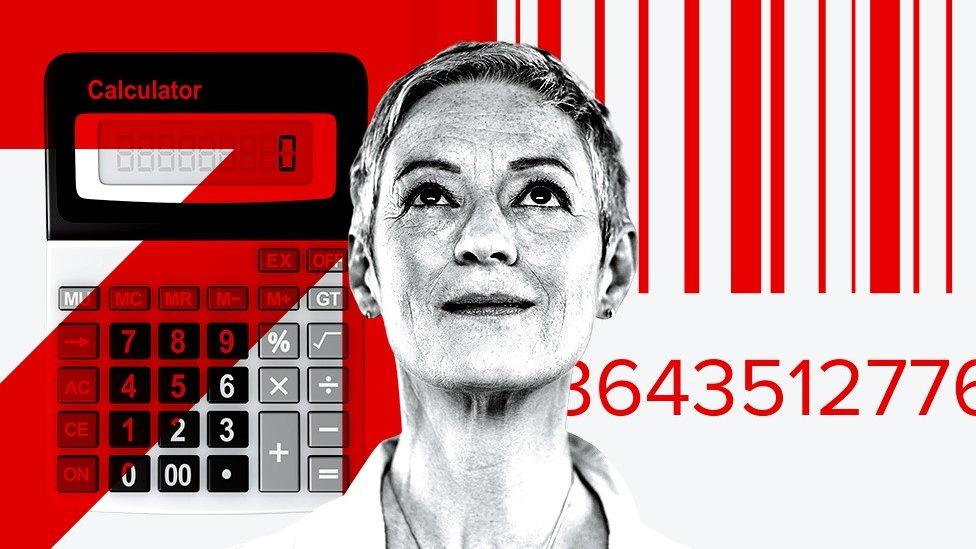
- Published25 November 2022
